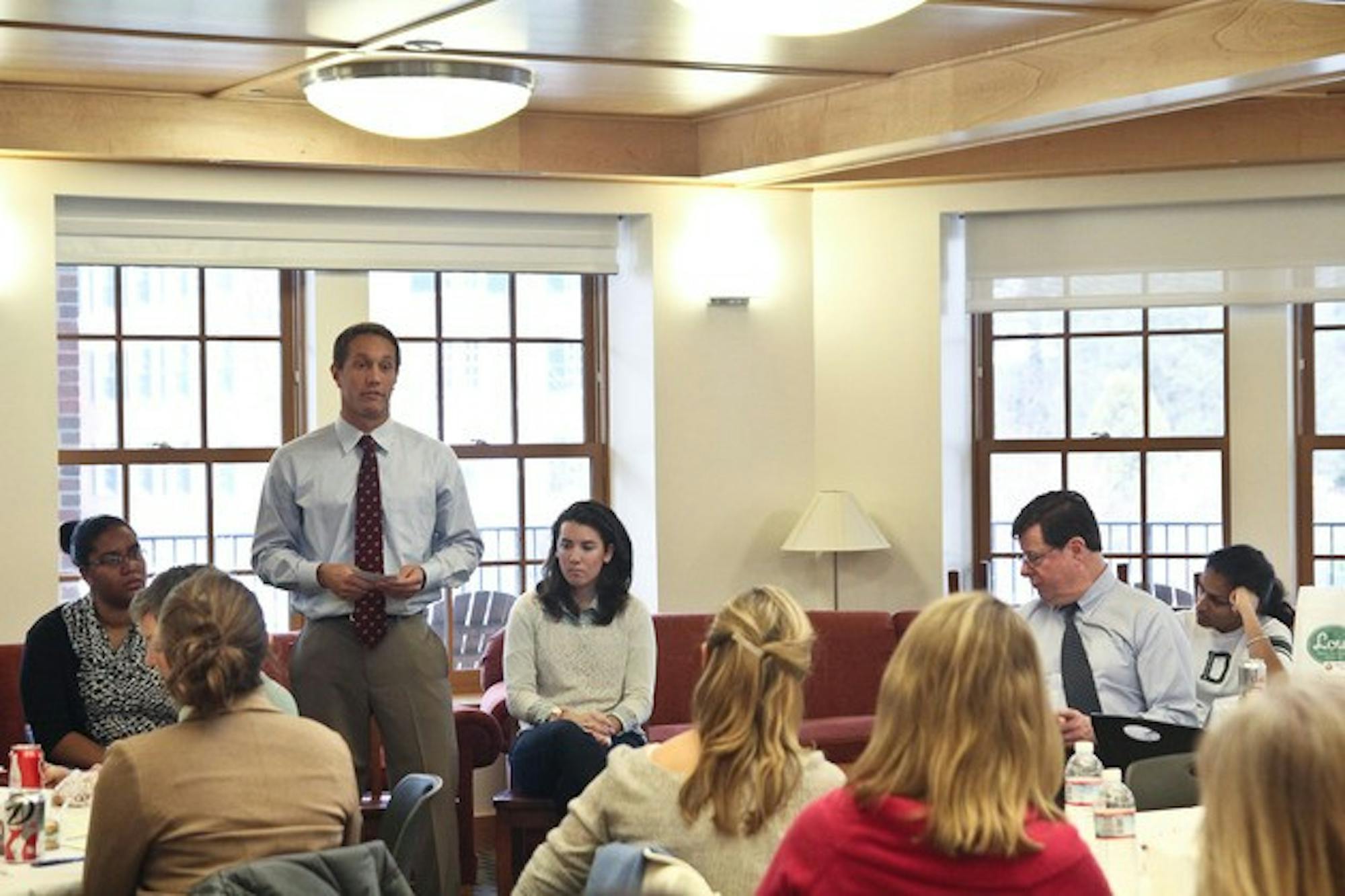Staff and faculty who work closely with students on gender issues were invited to hear the presentations, according to event co-organizer and Tucker Foundation service and educational programs director Helen Damon-Moore.
This event, which was planned by Damon-Moore and DCAL director Thomas Luxon, is one of the "building blocks" leading up to a longer series of conversations this spring about co-education at Dartmouth.
Joseph Miller '14, a gender-neutral program floor undergraduate advisor and Student Assembly Diversity and Community Affairs committee chair, said that binary gender perceptions exist in both his hometown Salt Lake City and at the College.
Miller said living on the gender-neutral program floor has been the highlight of his gendered experiences at Dartmouth. Gender-neutral should not mean the absence of gender, but rather a "rainbow variety" of gendered options should be accepted, he said.
"It's ridiculous how many events at Dartmouth have the idea of men versus women," Miller said.
The most positive cultural change Dartmouth could make would be to extend gender-neutral housing options to most dorms on campus, he said.Zack Doherty '13, a member of Psi Upsilon fraternity and varsity swim team co-captain, said his interactions with his teammates on the swim team are the highlight of his gendered experiences at the College.
The college swim teams have held joint practices since the early 2000s, he said.
"We have a lot in common," Doherty said. "We all want the same things. We have similar experiences. I think that really facilitates positive interactions."
Male members of the team involved with Greek life consider their female teammates as sisters, according to Doherty.
"If the women on the team came to Psi U, I would definitely look to interact with them, make sure they have a good time and of course, make sure that they are safe," he said.
One of the main obstacles to positive gendered interactions at Dartmouth is the campus's insular culture, Doherty said.
Because students live in a small community, the sense of what is acceptable and what is normal becomes skewed, he said. Doherty is a member of The Dartmouth Staff.
Samantha McPherson '13, a member of the varsity field hockey team and Sigma Delta sorority, said that there is a need for more gender-neutral social spaces on campus.
McPherson said she has found the social spaces provided by her sorority to be much safer than those at other places.
"In my own house, the lights are always on," she said. "I don't have to worry about someone standing in a back corner. I also know most people who are there."
McPherson said she would like the College to create more daytime social spaces, particularly in classrooms.
"Most social places exist only at night," she said. "I have had two classes in my time here that I would have called social spaces."
In those classes, her professors made a special point to introduce personal elements to classroom discussion and facilitate group work and communication, she said.
Dartmouth students should also demonstrate greater support for women's athletics, McPherson said.
Men's ice hockey games draw larger and more diverse crowds than women's ice hockey games. While the men's teams seem to draw students with varying degrees of interest in athletics and hockey, only female athletes and very few male students attend women's hockey games, McPherson said.
Elizabeth Hoffman '13, a women's and gender studies major and a sexual assault peer adviser, said that Dartmouth students need more sex education.
During orientation, the majority of sex education has a rape prevention message, according to Hoffman. Other efforts include free condom giveaways, she said.
Hoffman said the high point of her many gendered interactions at Dartmouth has been forming strong male friendships during her senior year.
"I am now seeing men as allies and not as sources of violence," she said.
The discussion, titled "Forty Years of Coeducation at Dartmouth: A Community Conversation," was sponsored by the Tucker Foundation and DCAL.
A spring conversation titled "Mentoring, Gender, and Social Justice Civic Seminar" is tentatively planned for May 25.




